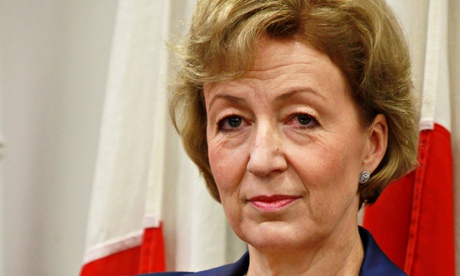
The NHS has been criticised for failing women who suffer from postnatal depression by denying many of them potentially life-saving services to help them cope.
Freedom of Information Act responses from 193 NHS trusts across England reveal that only 50 provide a specialist perinatal mental health service to women around the time they give birth and five others offer some sort of provision. More than half of the trusts disclosed that they do not offer any formal help, even though one in 10 mothers experiences postnatal depression.
Even among the 50 trusts operating such a service, 26 employ only one dedicated perinatal mental health midwife or doctor and many of those work part-time. Government health advisers recommended seven years ago that such care should be available everywhere.
The National Childbirth Trust (NCT), which submitted the FoI requests, said it was absolutely disgraceful that so few parts of the health service provided specialist help to women, some of whom end up taking their own life because they cannot cope. "The Nice [National Institute for Health and Care Excellence] recommendations have been in place for seven years, so it appalling that they are still not being properly implemented," said Belinda Phipps, the NCT's chief executive. "It is the same old thing of the NHS recognising physical needs of mothers but failing to recognise their mental health needs. It is absolutely disgraceful, when we know that one in 10 mothers suffer some form of postnatal depression, that there are huge areas of the country with no provision for their care.
"That is a lot of women being let down by the NHS every year, especially when we know that maternal suicide is a leading cause of death in the first year after childbirth," she said.
The position is even worse among GP-led clinical commissioning groups, which distribute £66bn a year of the NHS's £110bn budget and play a key role in influencing what services are available locally because they pay for patients' care.
Only five of 194 clinical commissioning groups already have a strategy for providing perinatal mental health services, although another 34 are developing or planning to develop one, according to responses to FoI requests. Health minister Dr Dan Poulter said last year that "specialist mental health doctors and midwives are crucial in helping women at risk of suffering from depression". In 2007, Nice issued guidance saying that any woman depressed after giving birth should get such help.
While some areas offered excellent care, "too often we have found situations where there is no care or very little. If there are whole areas where GPs, midwives and health visitors have no training or time to dedicate to this vital service, women will not get the help and support they need to cope," Phipps said.
"For many parents this will result in months of misery, damaging both family relations and children's wellbeing. In the most extreme circumstances it will result in tragedy and loss of life."
Last week Andrea Leadsom, the economic secretary to the Treasury, disclosed she had suffered postnatal depression after her first son's birth, when she was a banker at Barclays, and found it "quite traumatic". More should be done to help women with mental ill-health after they have given birth to reduce the risk of domestic violence or the baby experiencing "utterly life-changing consequences", she said.
Rebecca Cotton, director of mental health policy at the NHS Confederation, which represents hospitals, conceded existing services were far too thin on the ground. "We must ensure that every new mother who needs it is able to access mental health support," she added. "This needs to be a priority for the NHS. The consequences of not getting it right can be devastating for mothers, their children and families."
"Across the country there are some great specialist perinatal mental health services providing fantastic support. Sadly, there just aren't enough", Cotton said. The confederation says such services need to be universal in order to identify women at risk of or already suffering from birth-related mental health problems and treat them.
Poulter, who still works part-time as an NHS obstetrician, urged the NHS to give such care much greater importance. He has taken a particular interest in maternal mental ill-health and on Tuesday is hosting the latest in a series of roundtable debates at the Department of Health with key stakeholders to try and improve the situation. More needs to be done to give women who need it support wherever they live, he said.
"Healthcare systems across the globe have prioritised physical over mental health in maternity for too long," he told the Observer. "But we are making progress in England. From next year mental health training will be available for all midwives, so there are specialist staff available for every birthing unit across the country by 2017.
"Training inevitably takes time, but that should not stop the NHS acting now to improve care. I urge units across the country to do everything they can to support mums' mental health," he said.

